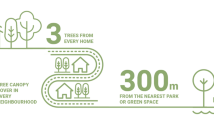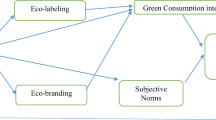Abstract
This study attempts to contemplate the respondents’ behaviors regarding recycling, with the purpose of identifying the factors that influence their behaviors. The study is based on a survey that was conducted with 230 nationwide university students and guidelines borrowed from the Theory of Planned Behavior and The Theory of Reasoned action. The data collected was evaluated by applying the Structure Equation Modelling technique. The study concluded that peoples’ attitudes are largely subject to the moral values and general norms of their own society. Additionally, an individual’s response towards recycling is greatly determined by the extent of his/her awareness towards the environment, as well as his/her personal knowledge. Another conclusion was that an individual’s past experience towards recycling contributes to his/her attitude (willingness or apprehension about recycling) in the future. Furthermore, although the convenience and cost of recycling were found to be reasonably significant determinants about one’s recycling behavior, it was determined that time commitment is the most decisive factor that influences an individual’s willingness to or not to recycle. The study’s findings have not only established the authority of Theory of Planned Behaviour and Theory of Reasoned Action, but it has also presented propositions and recommendations for future research. The inferences were based on the study’s respondents, hence, so their validity can be applied to various scenarios involving local educational institutions or government structures. The goal of the study is to encourage people to engage in positive recycling behavior.


Similar content being viewed by others
References
Ajzen, I. (1991). The theory of planned behaviour. Organizational Behaviour and Human Decision Processes, 50, 179–211.
Ajzen, I., & Fishbein, M. (1977). Attitude-behaviour relations: a theoretical analysis and review of empirical research. Psychological Bulletin, 84, 888–918.
Ajzen, I., & Fishbein, M. (1980). Understanding attitudes and predicting social behaviour. Englewood Cliffs, NJ: Prentice-Hall.
Bagozzi, R. P., Youjae, Y., & Baumgartner, J. (1990). The level of effort required for behaviour as a moderator of the attitude-behaviour relationship. European Journal of Social Psychology, 20, 45–59.
Barr, S., Gilg, A. W., & Ford, N. J. (2001). A conceptual framework for understanding and analyzing attitudes towards household-waste management. Environment and Planning, 33, 2025–2048.
Beck, L., & Ajzen, I. (1991). Predicting dishonest actions using the theory of planned behaviour. Journal of Research in Personality, 25, 285–301.
Begum, R. A., Siwar, C., Pereira, J. J., & Jaafar, A. H. (2009). Attitude and behavioural factors in waste management in the construction industry of Malaysia. Resources, Conservation and Recycling, 53, 321–328.
Bentler, P. M., & Speckart, G. (1979). Models of attitude-behavior relations. Psychological Review, 86, 452–464.
Boldero, J. (1995). The prediction of household recycling of newspaper: the role of attitudes, intentions and situational factors. Journal of Applied Social Psychology, 25, 440–462.
Bratt, C. (1999). The impact of norms and assumed consequences on recycling behaviour. Environment and Behaviour, 31, 630–656.
Chan, K. (1998). Mass communication and pro-environmental behaviour: waste recycling in Hong Kong. Journal of Environmental Management, 52, 317–325.
Chen, M. F., Tung, P. J. (2010). The moderating effect of perceived lack of facilities on consumers’ recycling intentions. Environment and Behaviour 42.
Cheung, S. F., Chan, D. K., & Wong, Z. S. (1999). Reexamining the theory of planned behaviour in understanding waste paper recycling. Environment and Behavior, 31, 587–617.
Conner, M., & McMillan, B. (1999). Interaction effects in the theory of planned behaviour: studying cannabis use. The British Journal Social Psychology, 38, 195–222.
Darby, L., & Obara, L. (2005). Household recycling behaviour and attitudes towards the disposal of small electrical and electronic equipment. Resources, Conservation, and Recycling, 44, 17–35.
Davies, J., Foxall, G. R., & Pallister, J. (2002). Beyond the intention-behaviour mythology: an integrated model of recycling. Market Theory, 1, 29–113.
del Mar Alonso-Almeida, M. (2013). Environmental management in tourism: students’ perceptions and managerial practice in restaurants from a gender perspective. Journal of Cleaner Production.
Diekmann, A., & Preisendörfer, P. (2003). Green and greenback: the behavioural effects of environmental attitudes in low-cost and high-cost situations. Rationality and Society, 15, 441–472.
Do Valle, P. O., Rebelo, E., Reis, E., & Menezes, J. (2005). Combining behavioural theories to predict recycling involvement. Environment and Behaviour, 37, 364–396.
Fredericks, A. J., & Dossett, D. L. (1983). Attitude–behaviour relations: a comparison of the Fishbein–Ajzen and Bentler–Speckart models. Journal of Personal Social Psychology, 45, 501–512.
González-Torre, P. L., Adenso-Díaz, B., & Ruiz-Torres, A. (2003). Some comparative factors regarding recycling collection systems in regions of the USA and Europe. Journal of Environmental Management, 69, 129–138.
Hair, J. F., Black, W. C., Babin, B. J., & Anderson, R. E. (2010). Multivariate data analysis. Upper Saddle River, NJ: Prentice-Hall.
Hassan A., Noordin T. A., Sulaiman S. (2010). The status on the level of environmental awareness in the concept of sustainable development amongst secondary school students, Procedia-Social and Behavioural Sciences, pp. 1276–1280.
Hofstede, G., & Bond, M. H. (1988). The Confucian connection: from cultural roots to economic growth. Organizational Dynamics, 16, 4–21.
Hornik, J., Cherian, J., Madansky, M., & Narayana, C. (1995). Determinants of recycling behaviour: a synthesis of research results. The Journal of Socio-Economics, 24, 105–127.
Hoyle, R. (1995). Structural equation modeling: concepts, issues, and applications. CA: Sage.
Juárez-Nájera, M., Rivera-Martínez, J. G., & Hafkamp, W. A. (2010). An explorative socio-psychological model for determining sustainable behavior: pilot study in German and Mexican universities. Journal of Cleaner Production, 18, 686–694.
Kelly, T. C., Mason, I. G., Leiss, M. W., & Ganesh, S. (2006). University community responses to on-campus resource recycling. Resources, Conservation and Recycling, 47, 42–55.
Knussen, C., Yule, F., MacKenzie, J., & Wells, M. (2004). An analysis of intentions to recycle household waste: the roles of past behaviour, perceived habit, and perceived lack of facilities. Journal of Environmental Psychology, 24, 237–246.
Liska, A. E. (1984). A critical examination of the causal structure of the Fishbein/Ajzen attitude-behaviour model. Social Psychology, 47, 61–74.
Liu, X., Tanaka, M., & Matsui, Y. (2009). Economic evaluation of optional recycling processes for waste electronic home appliances. Journal of Cleaner Production, 17, 53–60.
Mannetti, L., Pierro, A., & Livi, S. (2004). Recycling: planned and self-expressive behaviour. Journal of Environmental Psychology, 24, 227–236.
McDonald, S., & Ball, R. (1998). Public participation in plastics recycling schemes. Resources, Conservation and Recycling, 22, 123–141.
Neo, H. (2007). Challenging the developmental state: nature conservation in Singapore. Asia Pacific Viewpoint, 48, 186–199.
Ng R., Shi C. W. P., Tan H. X., Song B. (2013). Avoided impact quantification from recycling of wood waste in Singapore: an assessment of pallet made from technical wood versus virgin softwood. Journal of Cleaner Production.
Nigbur, D., Lyons, E., & Uzzell, D. (2010). Attitudes, norms, identity and environmental behaviour: using an expanded theory of planned behaviour to predict participation in a kerbside recycling programme. British Journal of Social Psychology, 49, 259–284.
Oskamp, S. (1995). Resource conservation and recycling: behaviour and policy. Journal of Social Issues, 51, 157–173.
Oskamp, S., Harrington, M. J., Edwards, T. C., Sherwood, D. L., Okuda, S. M., & Swanson, D. C. (1991). Factors influencing household recycling behavior. Environment and Behavior, 23, 494–519.
Parker, D., Manstead, A. S. R., Strading, S. G., Reason, J. T., & Baxter, J. S. (1992). Intentions to commit driving violations: an application of the theory of planned behaviour. Journal of Applied Psychology, 77, 94–101.
Perron, G. M., Côté, R. P., & Duffy, J. F. (2006). Improving environmental awareness training in business. Journal of Cleaner Production, 14, 551–562.
Riaz, A., Zahedi, G., & Klemeš, J. J. (2013). A review of cleaner production methods for the manufacture of methanol. Journal of Cleaner Production, 57, 19–37.
Rodríguez-Barreiro, L. M., Fernández-Manzanal, R., Serra, L. M., Carrasquer, J., Murillo, M. B., Morales, M. J., Calvo, J. M., & Valle, J. (2013). Approach to a causal model between attitudes and environmental behaviour. A graduate case study. Journal of Cleaner Production, 48, 116–125.
Saphores, J. M., Nixon, H., Ogunseitan, O. A., & Shapiro, A. A. (2006). Household willingness to recycle electronic waste: an application to California. Environment and Behaviour, 38, 183–208.
Sardinha, I. D., Craveiro, D., & Milheiras, S. (2013). A sustainability framework for redevelopment of rural brownfields: stakeholder participation at SÃO DOMINGOS mine, Portugal. Journal of Cleaner Production, 57, 200–208.
Shaw, P. J. (2008). Nearest neighbour effects in kerbside household waste recycling. Resources, Conservation and Recycling, 52, 775–784.
Sidique, S. F., Joshi, S. V., & Lupi, F. (2010a). Factors influencing the rate of recycling: an analysis of Minnesota counties. Resources, Conservation and Recycling, 54, 242–249.
Sidique, S. F., Lupi, F., & Joshi, S. V. (2010b). The effects of behavior and attitudes on drop-off recycling activities. Resources, Conservation and Recycling, 54, 163–170.
Terry, D. J., Hogg, M. A., & White, K. M. (1999). The theory of planned behaviour: self-identity, social identity and group norms. British Journal of Social Psychology, 38, 225–244.
Tonglet, M. (2000). Consumer misbehaviour: consumers’ perceptions of shoplifting and retail security. Security Journal, 13, 19–33.
Tonglet, M., Phillips, P. S., & Read, A. D. (2004). Using the theory of planned behaviour to investigate the determinants of recycling behaviour: a case study from brixworth, UK. Resources, Conservation and Recycling, 41, 191–214.
Tucker, P. (1999). Normative influences in household waste recycling. Journal of Environmental Planning and Management, 42, 63–82.
Vicente-Molina M. A., Fernández-Sáinz A., Izagirre-Olaizola J. (2013). Environmental knowledge and other variables affecting pro-environmental behaviour: comparison of university students from emerging and advanced countries. Journal of Cleaner Production.
Vining, J., & Ebreo, A. (1990). What makes a recycler? A comparison of recyclers and nonrecyclers. Environment and behavior, 22, 55–73.
Wang, Z., Zhang, B., Yin, J., & Zhang, X. (2011). Willingness and behavior towards e-waste recycling for residents in Beijing city, China. Journal of Cleaner Production, 19, 977–984.
Wang P., Liu Q., Qi Y. (2013). Factors influencing sustainable consumption behaviors: a survey of the rural residents in China. Journal of Cleaner Production.
Zsóka, Á., Szerényi, Z. M., Széchy, A., & Kocsis, T. (2013). Greening due to environmental education? Environmental knowledge, attitudes, consumer behavior and everyday pro-environmental activities of Hungarian high school and university students. Journal of Cleaner Production, 48, 126–138.
Author information
Authors and Affiliations
Corresponding author
Appendix
Appendix
Rights and permissions
About this article
Cite this article
Ahmad, M.S., Bazmi, A.A., Bhutto, A.W. et al. Students’ Responses to Improve Environmental Sustainability Through Recycling: Quantitatively Improving Qualitative Model. Applied Research Quality Life 11, 253–270 (2016). https://doi.org/10.1007/s11482-014-9366-7
Received:
Accepted:
Published:
Issue Date:
DOI: https://doi.org/10.1007/s11482-014-9366-7




